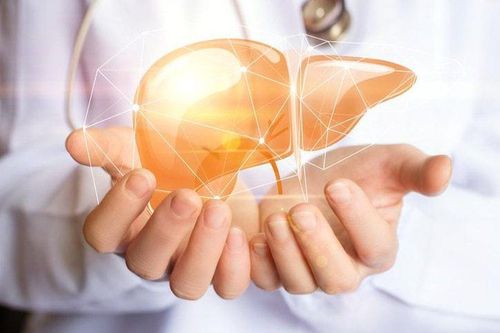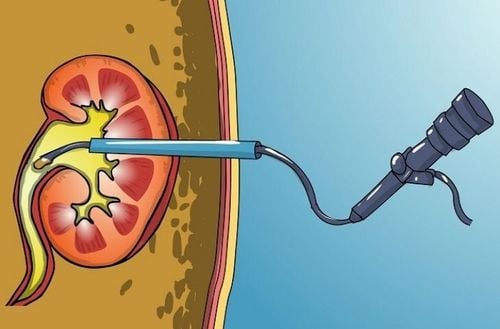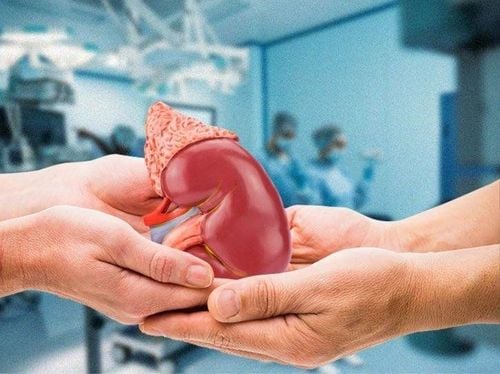This article has been reviewed and written under the professional guidance of doctors from the Department of Gastroenterology and Hepatology at Vinmec International General Hospital.
1. Causes of Dull Lower Abdominal Pain in Women
Many people mistakenly associate lower abdominal pain in women solely with reproductive issues. However, this notion is incorrect. Numerous underlying conditions can lead to lower abdominal discomfort, and accurate diagnosis is crucial for effective treatment for women of all ages.
Below are some of the common conditions that may cause dull lower abdominal pain in women:
1.1. Pelvic Pain
Pain occurring below the navel, often referred to as pelvic pain, can signal a range of conditions from reproductive issues to digestive disorders or even life-threatening illnesses. To determine the exact cause and receive appropriate treatment, women are advised to consult a physician.
1.2. Chronic Pelvic Pain
If a woman experiences dull pain below the navel for six months or longer, it could indicate chronic pelvic pain. This condition not only causes discomfort but can also interfere with sleep and daily life. Seeking prompt medical consultation is essential.
1.3. Appendicitis
Sharp pain in the lower right abdomen, accompanied by symptoms such as nausea and fever, could be a sign of appendicitis—a medical emergency. Appendicitis can occur at any age but is more common in teenagers and young adults (ages 10–30). If not surgically treated, the infection can spread to the abdominal cavity, leading to life-threatening complications.
1.4. Irritable Bowel Syndrome (IBS)
Symptoms like cramping, bloating, diarrhea, or constipation are hallmark signs of irritable bowel syndrome (IBS), a chronic digestive disorder. These symptoms often worsen with sudden dietary changes or prolonged stress.
Trắc nghiệm: Làm thế nào để bảo vệ lá gan khỏe mạnh?
Làm test trắc nghiệm kiểm tra hiểu biết về gan có thể giúp bạn nhận thức rõ vai trò quan trọng của gan, từ đó có các biện pháp bảo vệ gan để phòng ngừa bệnh tật.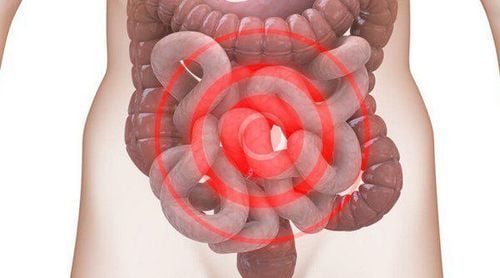
1.5. Ovulation Pain
Mild lower abdominal pain or sharp cramps during ovulation are common in many women. This occurs due to the release of an egg from the ovary, accompanied by a small amount of blood and fluid, which irritates the abdominal lining.
1.6. Premenstrual Syndrome (PMS)
Most women experience PMS symptoms such as mood swings, acne, headaches, abdominal pain, and cramps. These symptoms are caused by hormonal fluctuations during the menstrual cycle. Regular exercise and vitamin supplementation can help alleviate discomfort.
1.7. Ectopic Pregnancy
An ectopic pregnancy occurs when the embryo implants and develops outside the uterus, usually in the fallopian tube. This is a life-threatening condition with symptoms including severe pelvic pain (often localized to one side), vaginal bleeding, nausea, and dizziness. Immediate medical attention is required.
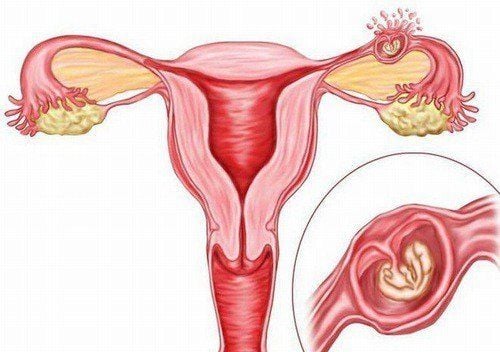
1.8. Pelvic Inflammatory Disease (PID)
Pelvic inflammatory disease can damage the uterus, ovaries, and fallopian tubes, potentially leading to infertility. Symptoms include abdominal pain, fever, unusual vaginal discharge, pain during intercourse, or frequent urination. In severe cases, surgery may be required.
1.9. Ovarian Cysts
While ovarian cysts are typically harmless, larger cysts can cause pelvic pain, weight gain, and frequent urination. Gynecological examinations or ultrasounds are recommended for diagnosis.
1.10. Uterine Fibroids
Uterine fibroids are non-cancerous growths on the uterine wall, commonly seen in women aged 30–40. While some women may be asymptomatic, others may experience abdominal pain, backaches, pain during intercourse, or difficulty conceiving. Surgical intervention may be necessary in severe cases.
1.11. Endometriosis
Endometriosis occurs when uterine tissue grows outside the uterus, such as on the ovaries, fallopian tubes, bladder, or intestines. This condition is often associated with lower abdominal pain and can contribute to infertility.
1.12. Urinary Tract Infection (UTI)
A UTI occurs when bacteria infect the urinary tract, causing inflammation in the urethra, bladder, or ureters. Symptoms include abdominal pain, painful urination, frequent urination, and a constant urge to urinate.
Left untreated, UTIs can progress to kidney infections, potentially causing severe kidney damage. Symptoms of kidney infections include fever, nausea, and pain on one side of the lower back.
1.13. Kidney Stones
Kidney stones form due to the accumulation of salts and minerals in the urine. Their sizes can vary from small granules to large stones. As they move, they can cause lower abdominal or pelvic pain, and urine may appear pink or red due to blood.
1.14. Interstitial Cystitis (IC)
Interstitial Cystitis (IC) is a chronic condition associated with inflammation of the bladder. Patients experience burning pain during urination, pain in the pubic area, and discomfort during sexual intercourse. Particularly in severe cases, individuals with interstitial cystitis may need to urinate frequently, sometimes several times within an hour. This condition is most commonly observed in women aged 30 to 40.
1.15. Sexually Transmitted Infections (STIs)
Lower abdominal pain and pelvic discomfort can indicate STIs such as gonorrhea or chlamydia. Other symptoms include painful urination, unusual vaginal discharge, and abnormal bleeding between periods. Immediate medical attention is crucial to prevent transmission and complications.
1.16. Pelvic Organ Prolapse
In older women, pelvic organ prolapse can lead to discomfort in the lower abdomen and pelvic region. The bladder and uterus are the most commonly affected organs. While not life-threatening, this condition causes significant discomfort, with symptoms such as fullness, groin pain, backaches, pain during intercourse, and increased vaginal pressure.
1.17. Pain During Sexual Intercourse
There are many potential causes of lower abdominal pain during sexual intercourse, the most common being vaginal infections, lack of lubrication (also known as vaginal dryness), or pain disorders that remain unexplained by medical science.
Lower abdominal pain during intercourse is a symptom that should not be ignored. To accurately determine the cause and receive appropriate treatment, women are advised to consult a gynecologist immediately.
The causes of lower abdominal pain in women are diverse and include serious medical conditions that may impact fertility. Hence, women should not take this condition lightly and must visit a hospital for proper diagnosis and timely treatment.
2. Is Abdominal Pain Dangerous?
Abdominal pain is a common symptom that may signal serious underlying conditions, some of which can be life-threatening. Prompt medical evaluation is essential if symptoms are accompanied by other abnormalities to ensure timely and effective treatment.
To arrange an appointment, please call HOTLINE or make your reservation directly HERE. You may also download the MyVinmec app to schedule appointments faster and manage your reservations more conveniently.





